TechBrief | June 1, 2024
Bulk Material Handling in Advanced Recycling: More Complicated Than You Knew
When dealing with gas or liquids, the processes are well established for optimal efficiency. However, the game changes for bulk materials containing solid particles. Properties like cohesion, permeability, compressibility, internal friction, friability or abrasiveness all make these materials much more difficult to manage in industrial process settings.
FEATURES
- INVESTING IN AN ENERGIZED FUTURE
- SUPPORTING EMERGING CLEAN ENERGY TECHNOLOGIES THROUGH THOUGHTFUL PARTNERSHIPS
- THE GRANT PROPOSAL: A STORY WORTH MILLIONS OF DOLLARS
- TECH TALK: EMBRACING NEW REALITIES
- WHAT’S NEW IN NUCLEAR? ADVANCING SAFETY AND AFFORDABILITY
IN EVERY ISSUE
ALL ISSUES
INSIGHTS & NEWS
Circular Economy of Plastics
With today’s shift toward a circular economy, bulk materials such as plastic pellets are gaining much attention. Rising concerns over the environmental impacts of plastic waste is driving interest in the potential of reusing and processing these critical bulk materials.
In the plastics industry, a number of innovative advanced recycling processes are emerging. For example, a thermochemical liquefaction process technology now in use involves taking bulk plastic materials through a process that avoids the degradation concerns that have been documented with mechanical recycling processes. Material handling is a key driver of the value chain for this new processing technology.
Battery Materials
With the adoption of electric vehicles and rapid technology advancements, we are at the start of an era where it is both necessary and cost advantageous to plan for these future end-of-life of batteries. Recycling batteries and waste production materials for reuse reduces the need for virgin feedstock. The unique requirements for processing and material handling equipment is important to factor in when planning for your project, whether it is the byproducts and ramifications of certain solutions, or the possible revenue streams you can attain from them.
Value Drivers
The bulk material handling processes necessary to optimize advanced recycling must address these factors:
- Safety and regulatory compliance
- Efficiency
- Product quality
- Cost savings
Safety and Compliance
Safety and compliance are important considerations when designing a facility that will have bulk material handling. Certain types of bulk materials may have elevated risks from airborne content that could cause explosions without proper ventilation and specially designed material handling equipment.
Hazardous materials are commonplace for many facilities that process battery materials and plastics. For material handling equipment such as conveyors, bulk bag equipment, hoppers or funnels, explosion deflagration, suppression or containment systems must be analyzed to mitigate the risks associated with the materials. The Occupational Safety and Health Administration (OSHA), the Department of Transportation and the Environmental Protection Agency are among the leading federal agencies with enforcement authority over proper transportation, handling and storage of hazardous bulk materials.
Efficiency Benchmarks
Facilities processing large volumes of bulk materials such as plastic pellets can reduce downtime and improve throughput by understanding the often-unique properties of such materials. How do they flow? How will they react when moving versus when they have settled? How will loading and unloading be handled? Will the materials arrive in bulk bags, drums or full railroad cars?
The design of material handling systems requires developing the profile of material properties for the types of equipment needed for optimal flow and efficiency. For example, extremely abrasive materials can take a toll on piping and internal walls of hoppers and funnels over time. Contamination also may be a factor for some materials, requiring sorting processes either at the plant or upstream at separation facilities.
Quality
Consistent product quality is important in the design of bulk material handling facilities. The design of the sorting and segregating systems must accommodate the unique characteristics of the materials, including the risk of spillage and contamination such as moisture. These processes depend on proper evaluation of the materials, including pilot testing of materials in order to meet necessary standards and specifications.
Cost Control
Driving Value
Systems designed to process bulk materials should be properly calibrated for the variability in the fluid dynamics of the bulk materials. Particles — whether they are plastic pellets, biobased feedstocks, minerals or metals — can be difficult to characterize or to fully understand without testing. Thus, interactions with process equipment can be unpredictable.
The way that materials are transported and delivered can play a role. Intermediate bulk containers offloaded from rail cars will likely have different variables for handling than drums arriving by truck. Testing and hands-on evaluations of the materials are highly recommended as steps to help understand characteristics of materials so that plant facilities can be properly designed.
Risk and Reward
Because the science of bulk material handling lags so far behind liquid and gas for optimal process efficiency, there are many opportunities for improvement. The failure modes are many times greater because the material when in bulk form is likely to behave differently after it undergoes changes in size or is converted from a solid to liquid.
This emerging engineering specialty requires skills that are equal parts process engineer, piping designer and structural engineer. From compressors to flow aids, the gamut of equipment can be broad and specifications must be precisely defined.
With proper focus on upfront design, many variables can be solved and efficient processes developed that address the four focus areas of safety and compliance, efficiency, quality, and cost. In this emerging field it is common to see these essential elements overlooked or underestimated. The focus is on the processing and the technology — whether the chemistry works — and not on material handling. Handling this emerging field of managing solids and changing properties at scale will undoubtedly be a major focus area in the future, particularly as demand for reused and recycled critical materials continues to grow.
Related Content
Blog
Advanced Recycling Technologies Provide Sustainable Solutions
Blog
Recycling Batteries Sparks New Market Opportunities
White Paper
Using Knowledge Transfer to Get Unique Projects Off on the Right Foot



.png)